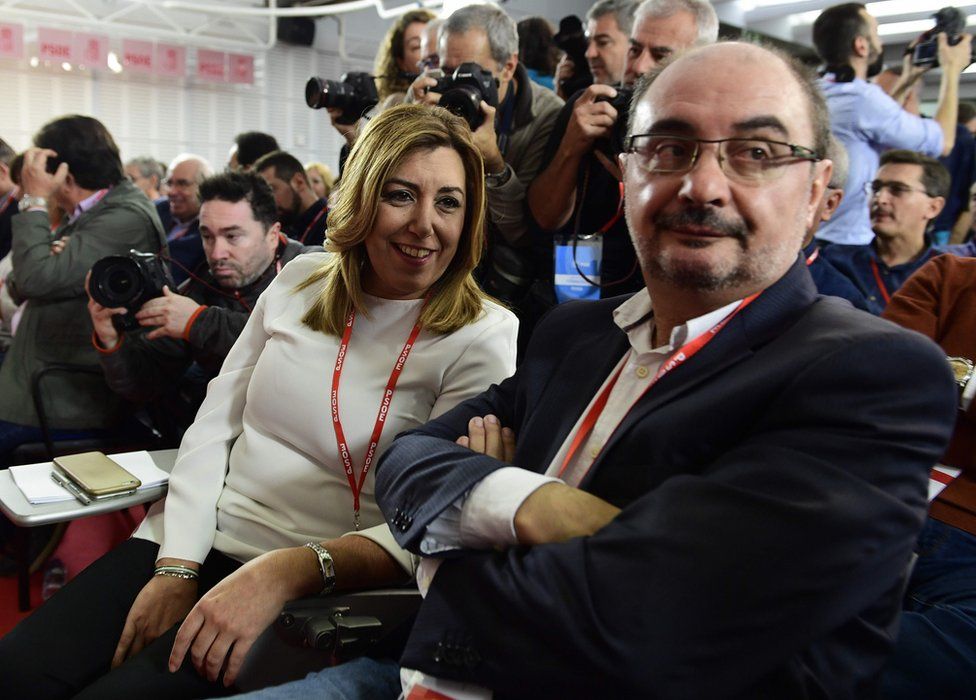Spain's Socialists vote to allow Rajoy minority government
- Published

The opposition Socialists in Spain have effectively voted to allow the conservatives under Mariano Rajoy to rule as a minority government.
Party leaders decided by a majority at their meeting in Madrid to abstain when Mr Rajoy puts his Popular Party (PP) government to a vote in parliament.
The country had faced the prospect of a third general election inside a year.
But the Socialists forced out their leader, Pedro Sanchez, earlier this month after he rejected abstention.
Mr Rajoy has led a caretaker administration since losing his overall majority in an election last December. A repeat election in June failed to end the impasse but strengthened his hand.
The Socialists (commonly known by their Spanish abbreviation, the PSOE) came second on both occasions, their support eroded by radical leftist newcomers Podemos.
For decades, the PSOE and PP took turns in governing the country on their own but last year the popular vote split four ways - the new centrist Ciudadanos party came fourth.
EU pressure
Sunday's resolution was passed by 139 votes to 96, with two members of the party's federal committee not voting, the PSOE reported in a tweet.
It came after weeks of bitter infighting.
"Most Spaniards, more than 65%, don't want to go back to the ballot box and it's the same among Socialist voters," MP Ignacio Urquizu was quoted as saying by AFP news agency.
Guillermo Fernandez Vara, a leader of the rebellion against Mr Sanchez, was also seeking a deal.
"Right now, with the worst results in our recent democratic history, the PSOE finds itself in a key situation," he said.
Writing in his blog (in Spanish), he argued the party could only act as a "true opposition" once Mr Rajoy, who governed with an overall majority from 2011 to 2015, was back in power.
The PSOE has 85 seats to the 137 won by the PP in June.
Thanks to the PSOE's abstention, the PP will no longer need to find 176 votes in the 350-seat parliament in order to form a government, relying instead on a simple majority when MPs assemble.
Opponents of abstention demonstrated outside PSOE party headquarters with placards reading "No".
Pablo Iglesias, leader of Podemos, said in a tweet (in Spanish) that the rotating two-party system had ended with a "Grand Coalition" between the PP and PSOE.
Despite the uncertainty, Spain's economy has maintained a steady pace of growth of just over 3% annually since early 2015, with tourists arriving in record numbers and unemployment creeping down.
However, the budget deficit is still well above target and the EU is pressing for action to reduce it next year.
Without a fully functioning central government, no new budgetary policies can be drawn up.